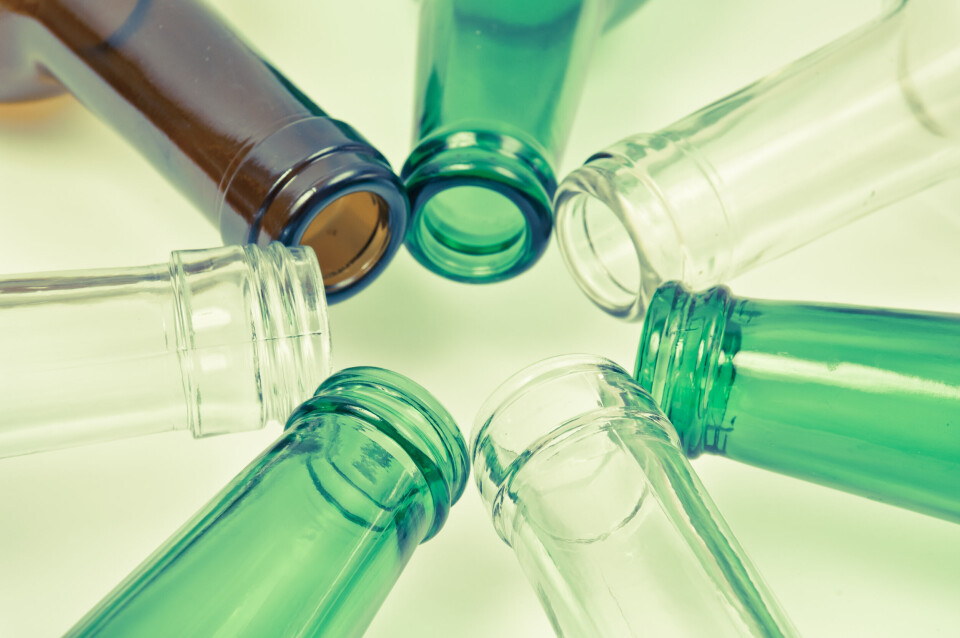-
French firm makes first ‘fibre-to-fibre’ recycled polyester T-shirt
Advance means that tonnes of clothes normally thrown away could be re-used
-
Recycling bins for clothes cannot cope in France
Fast fasion clothes are causing blockages although the problem is multi-faceted
-
French supermarkets to begin ‘automatic refunds’: how will this work?
The refunds will come into force from 2025 and are intended to encourage recycling packaging
Returnable glass beer and wine bottles making a comeback in France
A group of ten organisations are trying to standardise the ‘use and return’ practice across the country for environmental and economic reasons

Reusable glass bottles are experiencing a renaissance as inflation pushes up the cost of raw materials.
The ‘consigne’ system which allows customers to return empty bottles to retailers was common in France until the 1970s but had more or less disappeared until recently.
Now France Consigne, a group of ten organisations already involved in reusable bottles, launched last autumn and aims to standardise the practice across the country.
Trying to standardise bottle formats
“The idea is to be able to buy a drink in one region, consume it in another, and take the bottle back there,” said Charlotte Delpeux, head of communication at Bout’ à Bout’, one of the founders.
This means harmonising formats so bottles are identical.
The ten organisations work with 400 producers, 700 collection points, and reused 1.4 million bottles last year.
“In the east of France there are areas which never stopped doing this; in Alsace, for example, it is still practised,” Ms Delpeux said.
Bout’ à Bout’ is present in western France, meanwhile, where the reuse system had to be more or less rebuilt from scratch.
Only certain types of bottle can be reused. “They must be solid enough to handle washing, and the label must be easy to remove.”
Wine bottles need to be adapted
A growing number of wine producers are also switching to reusable bottles, although, whereas beer bottles are more likely to be compatible, wine bottles are often lighter and need to be adapted, Ms Delpeux said.
Wine also presents other challenges when it comes to standardisation, as there is a wide variety of bottle shapes, which are sometimes criteria for regional appellations.
Bout’ à Bout’ works with producers to switch to national formats, but also allows for regional specificities, and in some cases works with individual producers.
Read more: Winery in France offers bottle refill scheme to cut carbon footprint
Reuse a bottle 20 times then recycle it
A sign of growing demand, the company is set to open a new bottle cleaning facility near Nantes, which will eventually be able to wash more than 60 million bottles a year.
Recent laws aim for 10% of all packaging in France to be reusable by 2027.
Reusing glass bottles can reduce water use by 51%, energy by 79%, and the impact on global warming by 77%, compared to recycled bottles, according to the French environmental agency Ademe.
In order to be recycled, glass must be melted in an oven at 1,500C, requiring a large amount of energy.
Read more: Change to recycling rules in France and what can go in yellow bins
“We can reuse a bottle around 20 times, and then it can be recycled,” said Ms Delpeux.
“Originally the network’s partners came mainly for ecological reasons.
“Today, with inflation to the prices of raw materials, the type of people who look to reuse has changed slightly.
“You still have people interested in the environment but also others who have economic interests.
“Now reusable bottles are cheaper than new ones, and guarantee supply.”
Customer gets refund or incentive to return bottle
Customers pay a fee when purchasing, which is refunded upon return of the bottle or they receive another incentive when they return it.
The former system is more difficult in larger chains and in a context of inflation, Ms Delpeux said, which is why the company offers two cents per bottle returned.
More businesses are now getting in on the act, including Le Fourgon, which delivers beer, milk, water, wine and more, all in glass bottles, which it then collects at your door.
Reusable bottles can be identified thanks to a label with four arrows pointing towards a bottle.
Find existing collection points on the France Consigne website.
Related articles
All homes in France must have access to food waste bin from next year
French supermarket Carrefour trials vouchers-for-recycling scheme
French town collects stale bread to make energy and fertiliser
























